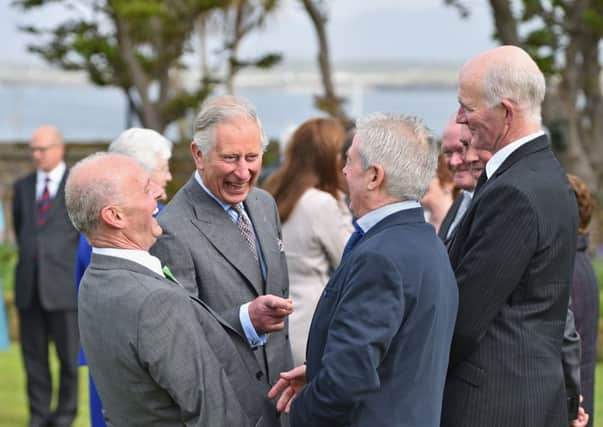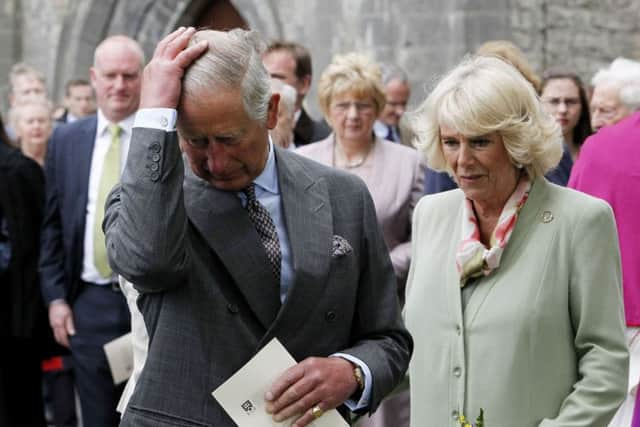Prince Charles pays emotional Mountbatten tribute


The Prince of Wales told victims of the Northern Ireland conflict how he feels their pain after his great-uncle, Lord Louis Mountbatten, was killed by the IRA.
The prince made the comments a day after his historic handshake with Sinn Fein president Gerry Adams.
Advertisement
Hide AdAdvertisement
Hide AdCharles said that time had been a healer for him, but his grief had given him a deep understanding of the hurt of others.


Speaking near the scene of the assassination, on a mission of reconciliation, he said: “In August 1979, my much-loved great-uncle Lord Mountbatten was killed alongside his young grandson and my godson, Nicholas, and his friend, Paul Maxwell, and Nicholas’s grandmother, the Dowager Lady Brabourne.
“At the time I could not imagine how we would come to terms with the anguish of such a deep loss since, for me, Lord Mountbatten represented the grandfather I never had.
“So it seemed as if the foundations of all that we held dear in life had been torn apart irreparably.”
The heir to the throne noted the centuries of conflict between Britain and Ireland, and the decades of turmoil over Northern Ireland that claimed 3,700 lives – as well as the price his own family paid in the IRA attack
almost four decades ago.
Prince Charles took a breath before recalling how his great-uncle was killed when a remote-controlled bomb destroyed his yacht as it left the fishing village of Mullaghmore, where the Second World War hero had lived for three decades in a castle estate.
He added: “Through this dreadful experience, though, I now understand in a profound way the agonies borne by so many others in these islands of whatever faith, denomination or political tradition.”
The Prince of Wales became the first senior member of the royal family to visit the scene of the attack.
Advertisement
Hide AdAdvertisement
Hide AdHe met some of those who were in the seaside village on the day of the atrocity, and others who pulled survivors and bodies from the Atlantic.
Lord Mountbatten was targeted by the IRA as he set off with family members and a local boy to gather lobster pots and fish for shrimp 600 yards from the harbour of the normally peaceful fishing village.
Ireland’s foreign affairs minister Charlie Flanagan said: “As you travel up the Sligo coast today to an ecumenical service of reconciliation at Drumcliffe and onwards to beautiful Mullaghmore, you will see just why Lord Mountbatten loved the harbour and its community so much.”
Mr Flanagan told invited guests in Sligo, at the start of day two of the trip, of the “modern, dynamic and friendly relations which Ireland and Britain enjoy today”.
He added: “So much of your visit here is about the quality of the relationship between our two countries in the 21st century – relations that can be aptly described as warm, neighbourly, dynamic and further improving all of the time.
“In your inspiring remarks just now, you have returned to the themes of peace, reconciliation and dealing with the contentious legacy of the past – issues that still challenge us and issues that formed the basis of the recent Stormont House agreement.”